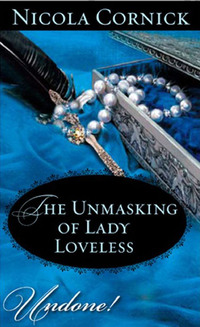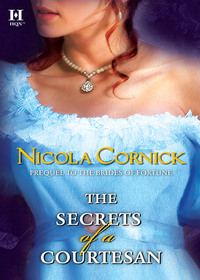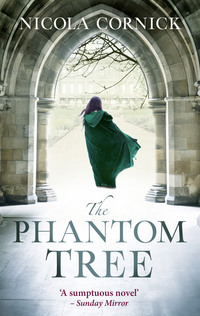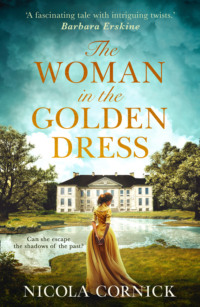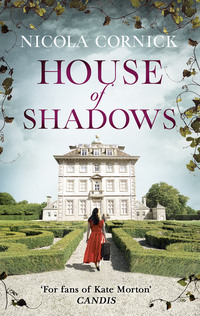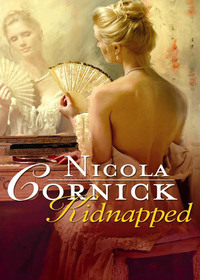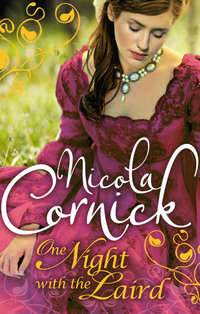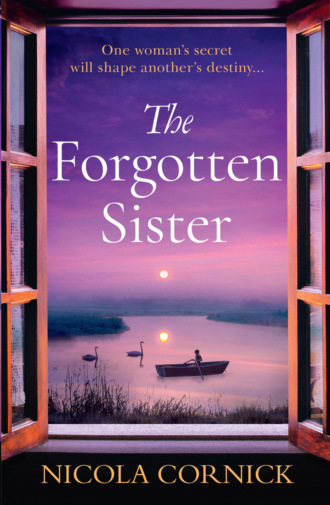
Полная версия
The Forgotten Sister
Lizzie withdrew her hand. Psychometry gave her the ability to pry into other people’s lives sometimes but she really didn’t want to know what went on between Dudley and Amelia. She absentmindedly rubbed her fingers over the lines of the stone angel’s wings, tracing the intricate carving. It was a beautiful piece, the hands cupping the crystal ball, the head bent. As she touched it, she heard the thrum of the harp again but this time it wasn’t sweet and plaintive. There was a cold edge to it like shards of ice that sent a shiver down her spine.
The world exploded suddenly around her. She felt a rush of movement and a blur of colour; she felt a hand in the small of her back, pushing hard, then she was falling, falling. There was a rush of air against her face and the lightness of empty space beneath her. There was fear screaming inside her head. Then, as quickly as they had arrived, the sensations passed. She was lying on the floor and people were buzzing around her like flies.
‘What happened?’
‘I heard her screaming…’
‘Trust Lizzie Kingdom to try and steal the limelight today of all days…’
Lizzie sat up. Her head was woozy as though she had had too much champagne. Pieces of the crystal lay scattered about her in glittering shards, one of which had embedded itself in the palm of her right hand. It stung fiercely. She could hear Amelia in the background, wailing that Lizzie had broken her gazing ball.
The stone angel lay next to her, unbroken. Lizzie felt dazed, her mind cloudy, sickness churning in her stomach. What the hell had happened? She knew she hadn’t smashed the crystal.
People were still talking. No one seemed bothered about helping her up. She could hear Dudley’s voice: ‘For fuck’s sake, what’s the matter? It was only some cheap ornament.’ Amelia’s wails rose above the chatter. Lizzie focussed on keeping still and not throwing up. That would be the final humiliation. She felt like a pariah, abandoned in a sea of glass.
The crowd fell back a little, crunching the slivers of glass beneath their stilettos and hipster brogues. Arthur pushed through to her; he didn’t say anything, simply held out a hand to help her to her feet. Lizzie grabbed it and scrambled up. She had no pride left. She followed him down what felt like an endless succession of dark corridors into what looked like an old scullery full of discarded wedding paraphernalia, piles of empty boxes and flower containers heaped up and left out of sight. This, Lizzie thought, was definitely the servants’ quarters. She had been demoted from guest to unsightly wedding detritus along with all the rest of the rubbish.
Arthur was rummaging in a cupboard underneath a white ceramic sink. He emerged with a first aid kit in his hand. She turned her palm up so that he could clean the cut. The bleeding had stopped now but the wound throbbed, even more so when Arthur dabbed at it with antiseptic. Lizzie suppressed a wince as it stung. He was so dour and exasperated, and there was no way she was going to show any weakness.
‘I’m sorry,’ she said, as the silence became blistering. ‘I really don’t know what happened.’
‘Keep your hand still whilst I bandage it up,’ Arthur said. ‘It’s Amelia you should be apologising to,’ he added. ‘It’s her wedding you’ve ruined.’
‘Don’t be ridiculous,’ Lizzie snapped. Her hand was smarting but not as much as her feelings. ‘If anyone has ruined the wedding it’s Dudley, and that’s not my fault.’
‘You think?’ Arthur looked at her very directly and her heart did an odd sort of flip. He continued to wrap the bandage methodically around her hand and her wrist, as gently as before. Lizzie suddenly became acutely aware of his touch against her skin and by the time he had finished and tucked the end in she was squirming to escape.
‘Thanks,’ she said, jumping up and heading for the door. ‘I’ll just grab my bag and…’
Go. There was no way she was hanging around here any longer. She felt very odd.
Back in the grand hall, someone had swept up the glass and the place was empty. It was as though nothing had ever happened. Lizzie could hear the band playing and splashes and screams from the pool. The party had moved up a gear.
She called her driver who was there in three minutes. She was in such a hurry to get away that she left her very expensive jacket behind. Days later, when she finally emptied the wedding favours, teabags and scented candle from her goody bag, she found that in the confusion someone must have accidently slipped the little stone angel in with all the other stuff. She meant to return it to Amelia but after all the fuss it never seemed like the right time. Then she saw Amelia wearing her jacket as though it were her own so she never mentioned it again but stowed the angel away in a cupboard. She knew it was petty but Amelia had started it and the jacket was probably worth more than the ornament anyway.
Over the years she forgot about the stone angel, but she never forgot Dudley and Amelia’s wedding. She tried but there was no way she could ever forget a day that had ended with Amelia in hysterics and with blood on her hands. It felt ill-starred. It felt as though, sooner or later, something bad was going to happen.
Chapter 2
Amy: Stanfield Manor, Norfolk, August 1549
I met Robert Dudley on a night of moonlight, fire and gunpowder.
The wind had a sharp edge to it that evening, summer already turning away towards the chill of autumn. It brought with it the scent of burning from the rebel camp twelve miles to the north. The sky burned too, in shades of red and orange below the dark clouds, so that it was impossible to tell what was fire and what was sunset. They said that there were more than twelve thousand men assembled on Mousehold Heath, more than in the whole of Norwich itself, and Norwich was a great city, second only to London. Among the rebels’ prisoners was my half-brother John Appleyard, taken by our cousin Robert Kett, to help my father ponder whether his loyalty was to his king or to his kin. John’s capture cast a dark shadow over our house but our mother made no plea – it was not in her nature to beg, not even for her children – and Father stood firm. He was and always would be the King’s man.
‘We will be fifteen for dinner,’ Mother said when I met her in the hall. The servants were sweeping like madmen, some scattering fresh rushes, others covering the table with the best diamond-patterned linen cloths, the ones that Mother generally considered too fine for use. I saw the sparkle of silver: bowls, flagons, knives.
‘There is an army of rebels twelve miles away,’ I said, staring at the display. ‘Is it wise to bring out your treasure?’
She gave me the look that said I was pert. I waited for the reproach that would accompany it, the claim that my father had spoiled me, the youngest, his only daughter, and that I would never get myself a husband if I was so forward. Pots and kettles; I got three quarters of my nature from my mother and well she knew it; from her I had inherited a quick mind and a quick tongue but also the knowledge of when I needed to guard it. Men say that women chatter but they are the ones who so often lack discretion. Women can be as close as the grave.
But Mother did not reproach me. Instead her gaze swept over me from head to foot. There was a small frown between her brows; I thought it was because my hair was untidy and put up a hand to smooth it. My appearance was my vanity; I was fair and had no need of the dye. My skin was pale rose and cream and my eyes were wide and blue. I knew I was a beauty. I won’t pretend.
‘You are quite right,’ Mother said, after a moment’s scrutiny, with a wry twist of her lips. ‘You, of all our treasures, should be kept safe at a time like this. Unfortunately, your father insists that you should attend dinner tonight.’
I gaped at her, not understanding. I had only been referring to the plate and linens. Seeing my confusion, her smile grew, but it was a smile that chilled me in some manner I did not quite understand. It hinted at adult matters and I, for all my seventeen years, was still a child.
‘Your presence has been requested,’ she said. ‘The Earl of Warwick comes at the head of the King’s army. They march against the rebels. He is bringing his captains here to dine with us tonight and take counsel with your father. Two of his sons ride with him, Ambrose and Robert.’
My heart gave a tiny leap of excitement which I quickly suppressed out of guilt. The Earl of Warwick was coming here, to my corner of Norfolk, bringing danger and excitement to a place that seldom saw either. It was a curious feeling that took me then, a sense of anticipation tinged with a sadness of something lost; peace, innocence almost. But the rebels had already shattered both peace and innocence when they had risen up against the King’s laws.
‘I’m sorry,’ I said. ‘About the King’s army, I mean. It is hard for you, with John a prisoner and family loyalty split.’
She looked startled for a moment and then smiled at me, a proper smile this time, one that lit her tired eyes. ‘You are a sweet child, Amy,’ she said, patting my cheek. Her smile died. ‘Except that you are not a child any longer, it seems.’
She sighed. ‘Do you remember Robert Dudley?’ She was watching me very closely. I was not sure what she was looking for. ‘He asked your father if you would be present at dinner tonight. No…’ she corrected herself. ‘He requested that you should be present, which is a different matter entirely.’
Her look made it clear what she thought of the sons of the nobility asking after a gentleman’s daughter. I suppose she imagined that no good could come of it, despite my father’s ambitions.
‘I remember him,’ I said. I smiled a little at the memory for a picture had come into my mind, a small, obstinate boy, his black hair standing up on end like a cockerel’s crest, a boy whom the other children had mocked because he was as dark as a Spaniard. More cruelly they had called him a traitor’s grandson because the first Dudley of note had been a lawyer who had risen high in old King Henry’s favour and had then fallen from grace when the new King Henry had wanted to sweep his father’s stables clean. It had all happened before I was born, before Robert had been born too, but the ghost of the past had haunted him. People had long memories and cruel tongues, and as a result he was a child full of anger and fierce defiance, seeming all the more impotent because he had been so small and so young. I had secretly pitied Robert even whilst he had sworn he would be a knight one day and kill anyone who slighted his family name.
‘When did you meet him?’ Mother was like a terrier after a rat when she saw that smile.
‘I met him years ago at Kenninghall,’ I said. ‘And once, I think, when the Duchess took us up to London.’
My mother nodded. I felt the tension ease from her a little. Perhaps she believed that no harm could have come of a meeting between children under the auspices of the Duchess of Norfolk.
‘You were very young then,’ she said. ‘I wonder why he remembers you.’
‘I was kind to him, I suppose,’ I said. ‘The other children were not.’ I remembered dancing with Robert at some childish party at court; Lady Anne Tilney had scorned his proffered hand for the galliard and so he had turned to me as second choice. We must have been all of twelve years old and he had spent the entire dance glaring at Lady Anne and stepping on my toes.
‘They may be regretting that unkindness,’ my mother said, with another of her wry smiles, ‘now that his father rivals the Duke of Somerset for the King’s favour.’
A shiver tickled my spine like the ghosts of the past stirring again. I wondered whether Robert’s father had learned nothing from his own father’s fate. Why men chose to climb so high when the risk was so great was a matter on which I had no understanding. It was as though they enjoyed tempting the gods with their recklessness and repeating history over and again.
Mother’s mind had already moved on to more practical matters, however. ‘Wear your blue gown,’ she instructed, ‘the one that matches your eyes. Since you and I are to be present we shall at least make your father proud even if we will be bored to distraction by talk of military strategy.’
‘Yes, Mother,’ I said dutifully.
‘I’ll send Joan to you,’ Mother said. ‘And don’t lean out of the window to see what goes on outside whilst you dress.’ Seeing my blank look, she said with a hint of irritation: ‘Did I not mention but a moment ago that there is an army coming? There will be nigh on ten thousand men encamped in the fields beyond the orchard. I do not want you to become their entertainment.’
‘No, Mother,’ I said. I thought it would be easy enough to steal a look without being seen. The encampments, the fires, the horses, the food cooking, the scents and the noise… Stanfield Manor would be abuzz and it was impossible not to feel the expectancy in the air.
‘Remember that soldiers are dangerous, Amy,’ Mother added sharply, ‘commoner or nobleman alike.’
It seemed excessive to say ‘yes, Mother’ again, so I nodded obediently and hurried away to the stairs, aware that her watchful gaze was pinned upon my back. There was nothing to dispute in what she had said, nor in those things that she had not put into words. I might be young but I knew what she meant about soldiers and the way in which they snatched at pleasure with both hands in case it was their last chance. I did not want to be that prize, seized for a moment’s gratification then cast aside.
Even so, I thought about Robert Dudley whilst Joan helped me to dress and started to plait my long fair hair. She was slow and methodical, her tongue sticking from the corner of her mouth as her fingers worked. My thoughts, my dreams were the opposite of slow, skipping lightly from one place to the next. My memories of Robert were vague but that did not stop me from pinning my dreams on him. What sort of a man had he become? Was he handsome? Would he like me? Even as I counselled myself to hold fast to my common sense, I could feel excitement bubbling through me.
‘Keep still, Mistress Amy,’ Joan tutted as the braids slid from her fingers. ‘You are hopping about like a hen on a thorn.’
It seemed to take her an age of pinning and smoothing and straightening but finally she was done and I flew down the stairs. Yet when I reached the door of the hall I hesitated, stung by a sudden shyness at the sound of voices within. I smoothed my skirts, patted my coif, took a deep breath, but my feet seemed fixed to the flagstones. I could not move.
‘Amy!’ Mother appeared in the doorway, voice as sharp as a needle. ‘Why are you loitering there?’ Her gaze darted past me, looking for trouble. When she found none, it did not seem to appease her.
‘Come in.’ She flapped at me to go ahead of her.
The hall was hot. We did not need a fire in August but Father had ordered one lit anyway, all the better to show off the richness of his glass and silver. I wondered how the table bore the weight of so much food and spared a thought for the kitchen staff; cook’s sweat must have been liberally mixed in with the sauces. The servants were sweating too as they attended us, heat and nervousness making their faces redden and their hands shake. Father, never the most patient master, was snapping orders as though he were a general in the field.
‘There is a space for you there, Amy—’ Mother pushed me towards the centre of the table where there was an empty place laid. I sat. She sat opposite me, watching me like a cat with a mouse.
I felt like telling her that there was no need for her vigilance. On the one side of me was an old man who looked as though he had last ridden to war alongside the late King Henry at the Battle of the Spurs. On the other was a younger man who was so fat I wondered at the horse that had to bear his weight and whether he had to be winched into the saddle. A swift search of the room, conducted surreptitiously as I took my seat, had told me that neither Robert Dudley nor his brother Ambrose was present. I felt disproportionately disappointed. The old soldier ignored me, sucking noisily on chicken bones and throwing the scraps to the dogs. The younger smiled shyly and poured wine for me.
At the head of the table Father was deep in discussion with Lord Warwick. The King’s general was a fine-looking man, all the more so in his armour. He had presence and grace; I watched him as he talked, animated and at times fierce. I caught an echo of Robert in the proud lift of his head and directness of his gaze.
I picked at my food. The chicken was drenched in a sauce that was too rich and heavy. I wondered if cook was a rebel sympathiser and wanted to give the King’s men a stomach ache. Not that they were complaining. They looked half starved and only the presence of ladies prevented them from falling on each dish like dogs as it came out.
There was little conversation. The weather, the poor quality of the roads, the availability of horses and the fine taste of Stanfield-grown apples sustained us through several courses whilst I sat and sweated and reflected bitterly that I had wasted my hopes and dreams on a fantasy.
I escaped to my chamber as soon as I was able. Mother had no need to chivvy me out whilst the men sat late over their wine and their strategy. I took off my pretty dress and released my hair and lay down but of course I could not sleep. I was too irritated; with Robert, who had asked for me and then forgotten me, with myself for building something out of nothing. Outside there was a cacophony of noise: shouting, hammering, horses, footsteps, sounds of urgency that now rather than exciting me only served to annoy me. After a while I realised that I was not going to sleep. That irritated me even more. I threw back the covers and strode to the window, pushing wide the leaded pane.
Outside there was full moonlight, bright as day and yet casting the world in only black and white. It was the moon that preceded the harvest, except that the rebellion had thrown the harvest into disarray this year. The crops lay trampled in the fields and there would be no festival of celebration though there could well be a reaping of souls if not of corn. Instead of mummers and music, shadow men walked amongst the trees of the orchard. Smoke rose white against the bleached night sky and the air was rich with the smell of cooking and dung, a curious combination that caught at my throat.
There was sudden movement below my window. A man swung down from his horse, tethered it to a tree. I saw him in flashes of silver and black; the moonlight on his armour, his long shadow. He took off his helmet and took a deep breath of air, head back, shaking himself like a dog coming out of water. He was dark; the moon lit shades of blue in his hair like a raven’s wing. Then he looked up and the light fell full on his face.
I must have made some involuntary movement that caught his eye for he turned his head sharply to look at me. The gesture was so familiar even though I had not seen him for so many years. Recognition tugged deep within me. He raised a hand in greeting. I saw the flash of his smile. He knew me too.
I pushed the window frame wider. ‘Robert Dudley,’ I said. ‘You missed dinner.’
He laughed. ‘I am here now.’ He set his foot to the climbing rose that grew beneath my window. The whole delicate structure shivered as he put his weight on it, the last petals of summer drifting down, and I leaned out further to stop him.
‘You’ll fall!’ I had no care for propriety, only for his safety. I did not see the ranks of grinning soldiers pausing in their drinking and their gaming to watch us. I saw only him. Already I was swept away.
‘Never,’ he said. ‘You won’t lose me, Amy Robsart. I’ll not fall.’
A cloud passed over the moon, red like blood from the fire on the heath.
Despite the cumbersome weight of the armour he climbed fast, sure-footed, like a cat. He reached the window ledge and swung himself over and then he was in my room. A ragged cheer went up from the men below and he reached across me to close the window and banish them so that there was only the two of us there in the candlelight. He smelled of sweat and horses and smoke and the night air; it was exciting and my head swam.
We stood and stared at one another. His armour was dented and blackened by smoke. His face likewise was filthy with dirt and sweat. I put a hand up to touch his chest but could feel nothing but the coldness of hard steel beneath my palm so I raised it to his cheek and touched warm flesh. He was vital and vivid and all the things that my life lacked. His eyes blazed as he bent his head to kiss me.
That was how I met Robert Dudley again. By the morning we had pledged our troth and the seeds of our mutual destruction were already sown.
Конец ознакомительного фрагмента.
Текст предоставлен ООО «ЛитРес».
Прочитайте эту книгу целиком, купив полную легальную версию на ЛитРес.
Безопасно оплатить книгу можно банковской картой Visa, MasterCard, Maestro, со счета мобильного телефона, с платежного терминала, в салоне МТС или Связной, через PayPal, WebMoney, Яндекс.Деньги, QIWI Кошелек, бонусными картами или другим удобным Вам способом.


